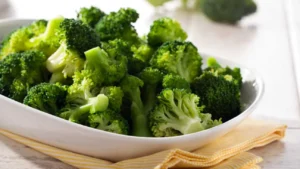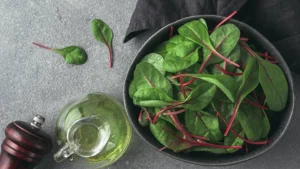How to get rid of mucus in the chest! Mucus and chest congestion can be discomforting and interfere with daily life. Understanding how to alleviate these issues naturally can significantly improve your well-being. Here are nine effective ways to manage and relieve mucus and chest congestion.
1. Humidifier
Why It Helps: A humidifier adds moisture to the air, reducing mucus thickness and easing chest congestion. Using one regularly in your room or workspace can provide continuous relief.
How to Use: Place a humidifier in the room where you spend the most time. Clean it regularly to prevent bacterial growth and ensure optimal effectiveness.
2. Position Changes
Impact on Chest Congestion: Changing positions can help move mucus within the chest, making it easier to expel. Elevating your head while sleeping can also reduce congestion.
Effective Positions: Try lying on your side or sitting upright to promote better drainage and ease the discomfort caused by congestion.
3. Controlled Coughing
Technique and Effectiveness: Controlled coughing involves inhaling deeply, holding your breath for a few seconds, and then coughing to clear mucus. This method helps in expelling mucus without straining the body.
Procedure: Sit comfortably, take a deep breath, and then cough two or three times gently. Avoid forceful coughing, which can cause strain.
4. Hot Shower
How it Helps: A hot shower creates steam, which can help loosen mucus and ease chest tightness. The warm moisture aids in reducing congestion.
Method: Take a long, hot shower in a steamy bathroom. Inhale the warm, moist air to help clear mucus from your chest.
5. Over-the-Counter Expectorants
Usage and Considerations: Expectorants thin mucus, making it easier to expel. Consult a healthcare professional before using, especially if you have underlying health conditions or are taking other medications.
Dosage: Follow the recommended dosage on the label or as prescribed by a healthcare provider.
6. Hot Beverages
Role in Alleviating Congestion: Hot beverages like tea or warm water with lemon can provide relief by thinning mucus and soothing the throat.
Recommendation: Drink herbal teas or warm water with honey and lemon several times a day for added comfort.
7. Soup
Types and Impact: Warm, brothy soups can hydrate and provide nutrients while easing congestion. Chicken soup, in particular, is known for its beneficial properties.
Benefits: Soups with vegetables and clear broths can help hydrate and ease throat discomfort.
8. Honey
Healing Properties: Honey has natural antibacterial properties and can soothe a sore throat. It also helps in reducing mucus production.
Usage: Take a spoonful of raw honey or add it to warm beverages for added relief.
9. Herbal Products
Options and Considerations: Herbal products like eucalyptus oil or peppermint tea have properties that can help alleviate congestion.
Caution: Consult with a healthcare professional before using herbal remedies, especially if you have existing health conditions or are taking medications.
When To See a Healthcare Provider
Seek medical assistance if:
- Chest congestion persists for more than a week
- You experience difficulty breathing
- Mucus is discolored or accompanied by fever
- Severe chest pain or tightness occurs
Review
These natural remedies offer effective ways to manage mucus and chest congestion. However, it’s crucial to listen to your body and seek medical advice if symptoms persist or worsen.
Conclusion
Alleviating mucus and chest congestion can greatly improve daily comfort and overall well-being. By incorporating these natural remedies into your routine and knowing when to seek medical attention, you can effectively manage these discomforts.
FAQs
How often should one use a humidifier for chest congestion?
Using it throughout the day, especially during sleep, can offer continuous relief.
Can position changes alone alleviate severe chest congestion?
While helpful, severe cases might require additional remedies or medical attention.
Are over-the-counter expectorants suitable for everyone?
Consult a healthcare provider, especially if you have underlying health conditions or take other medications.
What herbal products are recommended for chest congestion?
Eucalyptus oil and peppermint tea are popular options, but consultation with a healthcare professional is advised.
How long should one wait before seeking medical help for chest congestion?
If symptoms persist beyond a week or worsen, it’s advisable to seek medical assistance.





